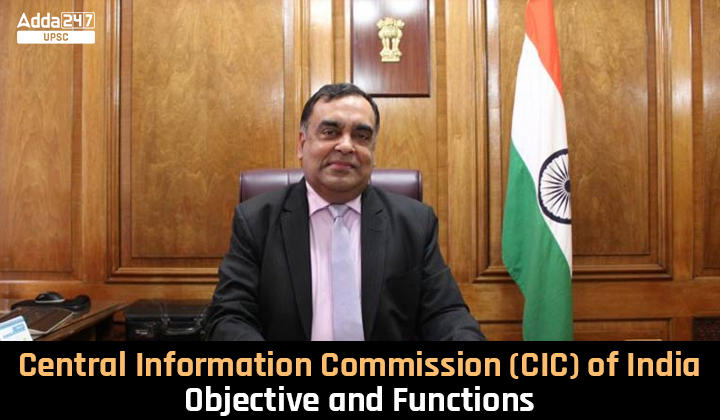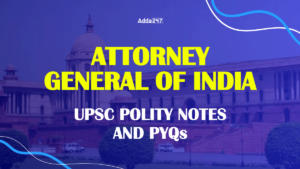Table of Contents
In a democratic country transparency and accountability of all the ministries and departments ensure the effective functioning of democracy and the administrative machinery in the country and for this role, the Right To Information Act 2005 outlines the establishment of the Central Information Commission.
Since it is established through the Act and not directly by the constitution, it is a non-constitutional body, in this article we will extensively discuss about the composition, tenure, service conditions, power and function of the Central Information Commission (CIC) from UPSC prelims and mains GS 2 perspective.
Central Information Commission Composition
- The commission consist of 1 Chief Information Commissioner and not more than 10 Information Commissioners.
- They are appointed by the president.
- Appointment is based on the recommendation from the committee comprising of Prime Minister as chairman, Leader of Opposition in Lok Sabha and union cabinet minister appointed by the prime minister.
- The commissioners can not be the member of the parliament or any legislative assembly.
- Also they should not hold any office of profit or connections with any political party.
Tenure and Service Conditions of Commissioners
now, we will discuss about the tenure and service condition provided to the chief information commissioner and the other information commissioner
- The Chief Information Commissioner and other commissioner holds office for 5 years or until the age of 65 years.
- they are not eligible for re-appointment.
- The President can remove any of the commissioners in the following conditions:
- if he is adjudged to be insolvent.
- if he is convicted of a offence
- if he engages in any paid employment during tenure
- if he is unfit from mind or body
- if his functions are affected because of any financial interest.
- he can be also removed from the office on grounds of misbehaviour (in this case the president will have to refer the matter to supreme court for an inquiry)
- The salary and other conditions of chief and information commissioner are similar to that offered to chief election commissioner and can not be altered to his disadvantage.
Function of Central Information Commission
Functions of the central information commission are :
- to receive complaints from :
- a person who is unable to submit the request because of non availability of the Public Information Officer.
- a person who has been refused for an information
- a person who has not received the response in the stipulated time frame
- a person who is of the opinion that the information is misleading
- The commission has to submit an annual report to the Central Government on implementation of the act.
- This report is placed before each house in the parliament.
Powers of Central Information Commission
The powers of the Central Information Commission are :
- The commission can initiate and order an inquiry into any matter.
- While doing an inquiry the CIC has powers of civil court in these matters :
- discovery and inspection of documents.
- receiving evidence on affidavit
- access to any public record
- summoning attendance of person.
- The commission can direct the public authority appoint a Public Information Officer
- The commission can impose penalties under RTI Act
- The commission can also ask the authority for compensation to the applicant in case of any loss suffered by the applicant
- Also it can reject applications
- It can direct for changes in the management system of records
- it can seek for annual reports from the public authorities
Challenges for Central Information Commission
- Lack of Transparency : The criteria for selecting Commissioners and their working methods lack transparency.
- Lack of Capacity Building : Personnel appointed as Central Public Information Officers (CPIOs) often lack sufficient knowledge of the RTI Act.
- Delay in Disposal of Appeals : While the RTI Act mandates time limits for disposing of first appeals, there has been no mention for the same about the second appeal.
- Less Public Awareness : There is a lack of awareness about the RTI Act, which results into low participation from the public.
along with the above mentioned challenges poor quality information and vacancy issues are also a challenge for effective working of the CIC also the loophole in RTI Act for second appellate to be the same department as it was for the first appellate and denial of information under the pursuit of section 8 of RTI Act.



 Attorney General of India UPSC Notes (Ar...
Attorney General of India UPSC Notes (Ar...
 Election Laws in India UPSC Notes
Election Laws in India UPSC Notes
 Indian Parliamentary Forums UPSC Notes
Indian Parliamentary Forums UPSC Notes
